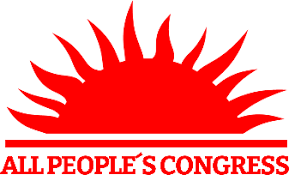For the purpose of auditing to enhance accountability as an arbiter of democratic good governance, financial statements must, as by law stated, be submitted by public institutions every year; the Acting Auditor of the Audit Service Sierra Leone reminds public institutions in a notice recently released. According to experts, financial statements are written records that convey the financial activities of an organisation.
Government agencies and accountants often audit financial statements to ensure accuracy for tax, financing, or investing purposes. Financial statements are essentially the report cards for organisations, and they tell the story, in numbers, about the financial health of the organisation. The ground norm of the accountability laws in Sierra Leone, the Public Financial Management Act and it amendments urges all public institutions to submit financial statements for audit, at a stipulated date of March 31 for every financial year. Other legal instruments also trumpet this accountability call.
The Acting Auditor General has stated during public engagements that public institutions must adhere and stick to the rule of the game. For proper accountability, he said the review of these financial statements will extend to compliance and performance audits to focus on service delivery.
Sierra Leone is a small West African country of the highest intelligent quotient in Africa with a composition of intelligent people who want to know everything in their surroundings; leading to knowledge about how their tax monies are being spent by public institutions on daily basis.
In the era of democracy, public accountability is the obligation of public agencies and enterprises who have been trusted with public resources, to answer for the financial and social responsibilities that have been assigned to them. Public accountability lies at the very heart of proper governance and contributes to improved governance and poverty reduction. Public accountability can take two primary forms: fiscal and social accountability, which are regulated differently through administrative laws.
This democratic principle is a Town Chief in the Sierra Leone situation; hence, the establishment of institutions including the Audit Service Sierra Leone, to regulate the accountability structure.
The Audit Service Sierra Leone was established by law to ensure the effective and efficient management of public resources with the under mentioned mandate and laws…
Section 119(2) of the 1991 Constitution of Sierra Leone mandates the Auditor-General to audit the Public Accounts of Sierra Leone and all public offices including the courts, the accounts of the central and local government administrations, the universities and public institutions of like nature, any statutory corporation, company or other body or organisation established by an Act of Parliament or statutory instrument or otherwise set up partly or wholly out of Public Funds.
Section 11(g) of the Audit Service Amendment Act 2023 states that the ASSL should receive the annual financial statements for the previous financial year submitted by the Vote Controllers of the following entities: a sub-vented agency; a central government entity and a local government including a local council and a chiefdom administration in accordance with Sub-section 1 of Section 86 of the Public Financial Management Act of 2016 (Act no 13 of 2016)
The Public Financial Management Act of 2016 states that: “Within three months after the accounts of a financial year are closed at the end of a complementary period mentioned in Section 44, the Vote Controller of every entity in subsection (3) of section 86 shall submit to the Auditor -General annual financial statements of the entity for the financial year.”
Section 88(1) of the Local Government Act of 2022 states that: “Every local council shall keep proper books of accounts and proper records in relation to the accounts and shall, within the first quarter of the next financial year, prepare a statement of its final accounts in conformity with existing financial regulations”
Section 81(2) of the Local Government Act of 2004 as amended further states that: “The accounts and financial statements of a local council shall be audited by the Auditor-General or an auditor appointed by him within six months after the close of the financial year, and the council shall provide the auditors with all the necessary and appropriate facilities for the examination of the accounts and statements of the council.”
With these great powers, government should not renege on formulating regulations on the surcharge and disallowance that will further strengthen the accountability battle in public institutions for the common good.
By Babah Kanu
babbiuskay@gmail.com
+23276927562













